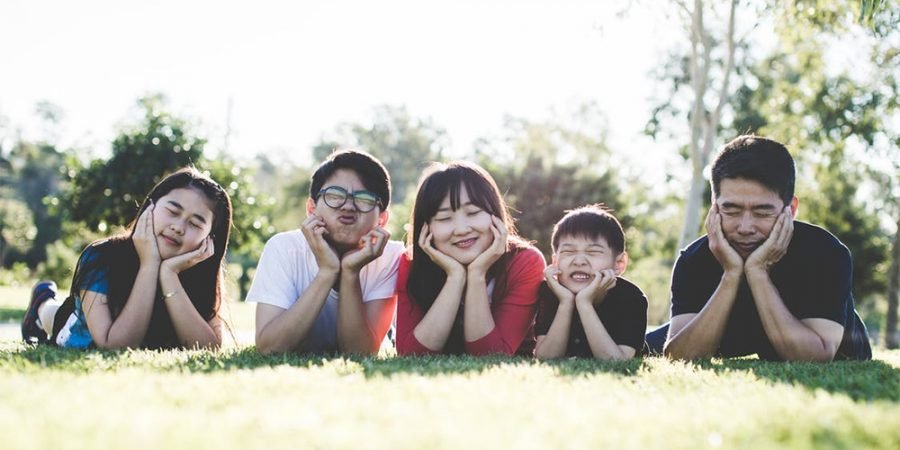In the Korean culture, familial relationships are highly respected and upheld. Family members hold each other closely and are committed to maintaining loyalty. The emergence of K-drama and the popular K-pop group BTS has prompted people’s curiosity. Read on and find out the importance of family values in Korean culture.
In Korea, family hierarchies are based on a Confucian organization of relationships where patriarchal authority is adhered to. This means that the father is the head of the family. He is supposed to shower his wife with kindness reciprocated with obedience and love. He is also supposed to guide and protect his children; in return, he receives filial piety, love, respect, and obedience.
Traditional Korean Family
According to Confucian philosophy, Korean family culture places family harmony above individual happiness. That’s why you find that even when children are grown, they still prefer to reside with their parents to take care of them in their old age.
According to the family hierarchy, the father is responsible for naming the children, but both parents can discuss Korean names inspired by K-pop for a better girl or boy name. Age determines your position with the family, with the eldest inheriting the family assets while the younger ones are at the bottom of the family tree. For instance, if you have an older brother, you should follow their instructions and seek them out when you need guidance.

For this reason, family is held in high regard, and all family members operate as a team. They are expected to remember that each one’s actions reflect the entire family.
Evolution of Family Values in Korean Culture after the War
After the Korean War, their family dynamics changed, and women were now on equal ground. Traditionally, we saw that women were supposed to obey and respect their husbands. In modern times, women can now share the responsibility of bringing home an income and disciplining their children.
However, this doesn’t erode the importance of family in Korean culture. Children still share a deep bond with their parents, and parents still emphasize looking after their children by ensuring they get quality education to help further their careers. And the high expectations of parents on children can often be too overwhelming.
Irrespective of Korean cultural changes, families still respect the customs. For instance, they hold ceremonies to honor their ancestors.
Traditionally, Korean family culture was focused on developing together as a unit. However, due to modernization and the introduction of technology and media, the young people in Korea are now more focused on individual development. This has led to tension in families, and more and more people are moving out of their parent’s homes, giving older Koreans a chance to be more independent and experience life alone, which can sometimes be freeing.
Dating and Marriage in Korea
Traditionally, Koreans have arranged marriages where the parents decide who they will marry. It did not matter whether the couple knew or liked each other, as unions were more about merging families than individuals.

This is not the case in today’s Korean culture, as young prefer to go on dates and choose for themselves who to marry. Parents still arrange blind dates for their children but leave the decision of whether to proceed with the relationship to them. Parents now recognize that their children want a marriage based on mutual understanding and love.
Celebrations
While couples in Western countries celebrate Valentine’s Day and wedding anniversaries, Korean couples have more to celebrate, making dating and marriage more fun.
Korean couples celebrate their relationships’ 100th, 200th, and 1000th day. Apart from Valentine’s Day, they also have other celebratory days for couples, such as Rose Day, Kiss Day, and Wine Day. Although parents leave the decision of dating and marriage to their children, they emphasize the importance of the relationship between husband and wife.
Unlike traditionally, where couples wore wonsam and chima when getting married, in a modern Korean marriage, the groom wears a tuxedo and the bride a dress. However, during the reception, with respect for their culture, the bride and groom wear traditional Korean clothing and bow to seek their blessings.
Unlike in Western marriages, where the wife takes her husband’s last name, Korean women retain their names after marriage, so it should not be surprising that the husband and wife have different names, but the children must take their father’s name.
How Does Divorce Work in Korea?
Traditionally, in Korean family culture, divorce and remarriage were considered problematic. Only the husband had the right to seek a divorce, and the wife would be kicked out of her in-law’s house. Some reasons a husband could divorce their partner include not birthing a son, adultery, sickness, jealousy of a second wife, or a thieving attitude.
However, the husband was not allowed to divorce his wife if she had nowhere to go, spent more than three years mourning for the loss of her parents-in-law, and if she contributed to the family’s current wealth and social position.
Funerals
In Korean family culture, the deceased’s family wears mourning clothes, and guests come to respect the dead by bowing twice to them and once to the mourners. It’s a culture to wear black clothes and avoid bright clothes. They wear red when celebrating birthdays as red represents blood, which is the sign of life.
There are no eulogy readings like in Western countries. And instead of a burial, Koreans prefer cremation.
Final Thoughts
Korea has fascinating family culture, and the popularity of K-dramas and K-pop music has piqued people’s interest. You’ll find many people enrolling on language apps to learn Korean so they can watch K-dramas without subtitles.
Although technology and media have caused many changes in the Korean family culture, the importance of family values in Korean culture has survived. For instance, many still respect the man as the patriarch. Besides, children still live with their parents even after becoming adults and getting married. This demonstrates their filial piety.


Ang galing nga ng Kultura nila may Pag respeto sa bawat myembro ng pamilya at sa mga magkapatid Andon yung paggalang sa nakakatanda na Sana dapat tularan ng mga bata dito sa atin
Dami ko na naman natutunan about Korean Culture.Ganda ng family ties sa kanila, talagang malalim yong pagpapahalaga nila.Ito sana yong gayahin natin yong pagkakaroon ng respeto at pagpapahalaga sa mga pamilya natin lalo na sa mga magulang natin.
Thank you for sharing this. Napakarich talaga ng Korean Culture. Kahit nagbabago ang panahon at nagiging modernized na, hindi parin nawawala ang nakasanayan nilang family values.
Napaka yaman talaga ng kultura ng Korean. Nakakatuwa ung mga bagay na natutuklasan natin skanila. Napaka halaga ng turingan nila sa bawat isa. Thanks ma sa pag share nito
Iba iba man ng kultura at paniniwala, ang importante talaga ay iyong respeto sa isa’t isa. Thank you for sharing this to us mommy. Ang dami kong natututunan sa kultura ng mga Korean.
Grabeee ma!!! Sobrang yaman ng Korean Culture, no wonder madaming nahuhumaling sa mga kdrama or anything related sa Korean, at isa nako don hehe. Binibigyang halaga talaga nila ang Family Values. I think it’s one of the reason why I really love Korea so much. Thanks for sharing this, dami kong natutunan sa blogpost na’to.
Ang gaNda ng korean culture. Family oriented din po SILA same sa Filipinos. Even when they grow up they’re still living sa parents Nila to take care of their parents kapag may edad na. Same satin. 🙂
Andami Kong learnings about their culture. Family oriented talaga ang mga Korean. And they respect it ❤️